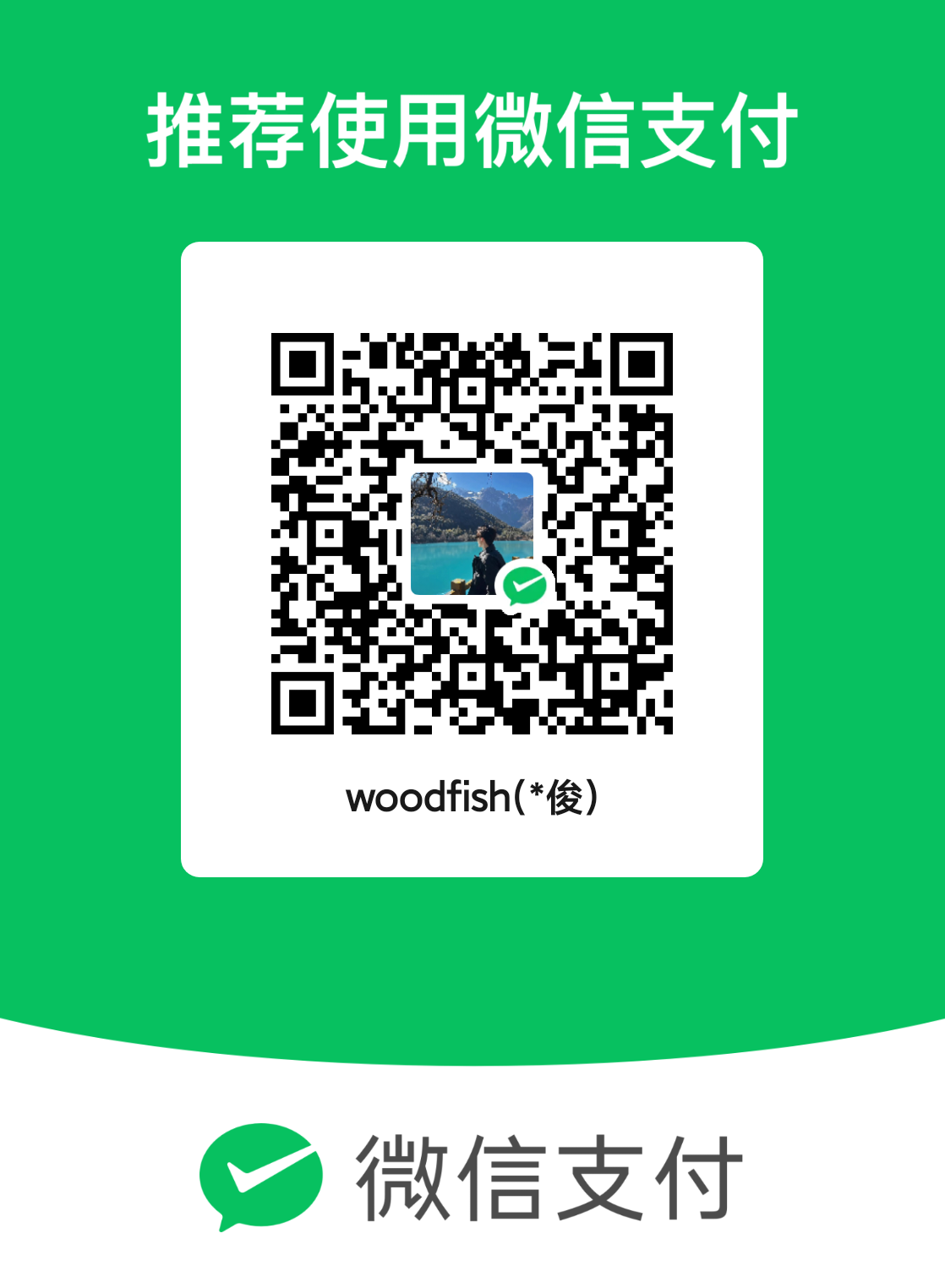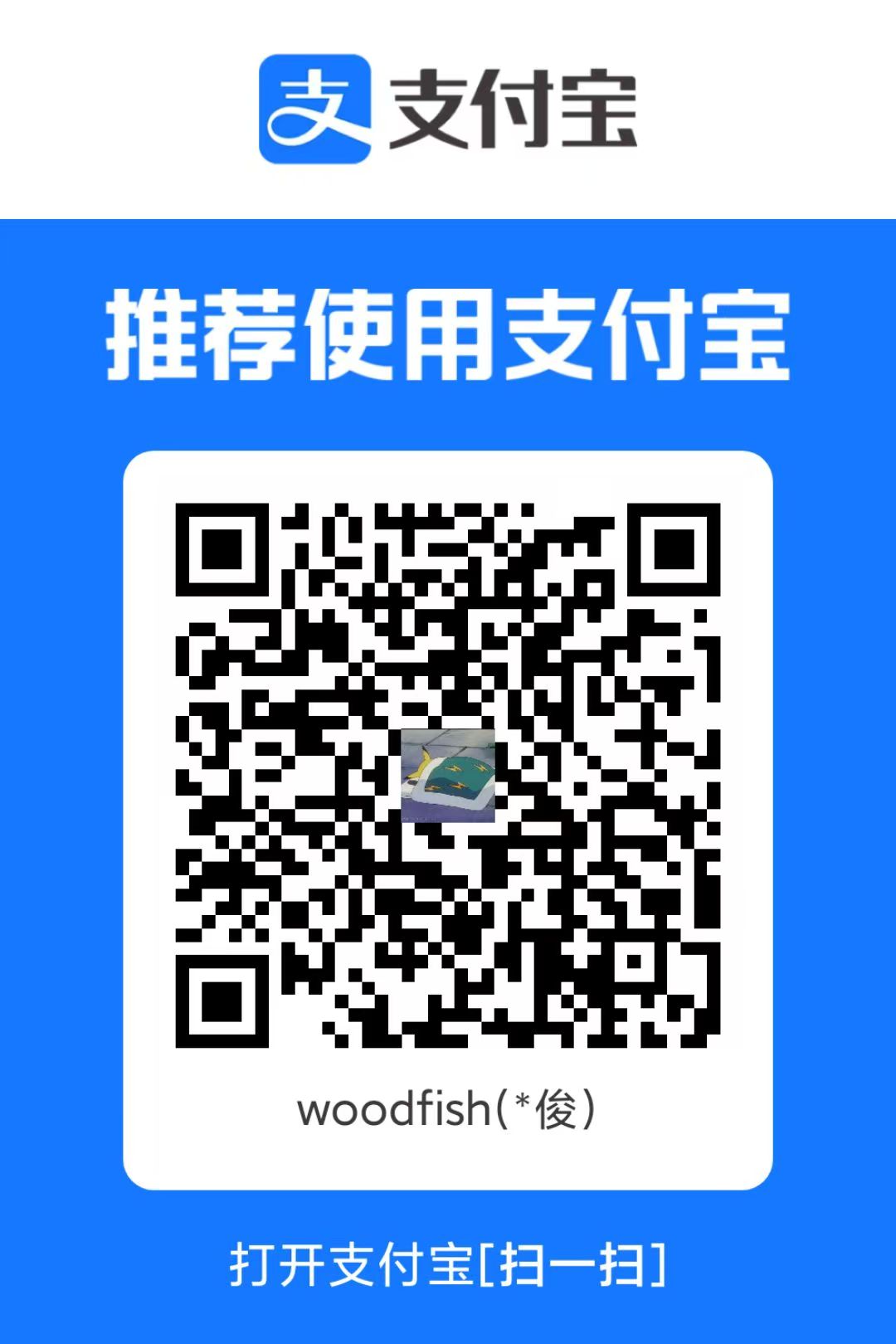前端CSSHTMLCSS 学习笔记(二):复合选择器、CSS 特性及背景与显示模式设置
woodfish复合选择器
定义:由两个以上的的基础选择器,通过不同的方式组合而成
作用:更准确,高效的选择目标元素(标签)
后代选择器
作用:选中某元素的后代元素
写法:父选择器 子选择器 { css选择器 } ,父子选择器之间用空格隔开
1
2
3
4
5
6
7
8
9
10
11
12
13
14
15
16
17
18
19
20
21
22
23
24
25
26
27
| <style>
div span {
color: red;
}
div strong {
color: blue;
}
div div {
color: green;
}
</style>
</head>
<body>
<div>
<span>span11111111111111</span>
<span>span2222222222222</span>
<span>span333333333333333</span>
<strong>strong111111</strong>
<div>div555555555555555555</div>
<div>
<div>
<span> span孙子级别 </span>
</div>
</div>
</div>
</body>
|
当使用后代选择器时,举例div span,在div里的所有span,包括子类,孙类,等等等等,都会受到后代选择器影响
但是我们可以这样写:
1
2
3
| div div div span {
color: red;
}
|
就可以一步一步缩小范围
子代选择器
子代选择器:选中某元素的子代元素 (最近的子级)。
选择器写法:父选择器 > 子选择器 {CSS 属性}, 父子选择器之间用 > 隔开。
1
2
3
4
5
6
7
8
9
10
11
12
13
14
| <style>
div > span {
color: red;
}
</style>
</head>
<body>
<div>
<span>儿子span1</span>
<p><span>孙子span2 </span></p>
</div>
</body>
|
并集选择器
并集选择器:选中多组标签设置相同的样式。
选择器写法:选择器 1, 选择器 2,…, 选择器 N {CSS 属性}, 选择器之间用,隔开。
1
2
3
4
5
6
7
8
9
10
11
12
13
14
15
| <style>
div,
span,
p,
h1 {
color: red;
}
</style>
</head>
<body>
<div>div标签</div>
<span>span标签</span>
<p>p标签</p>
<h1>h1标签</h1>
</body>
|
交集选择器(看懂就行)
交集选择器:选中同时满足多个条件的元素。
选择器写法:选择器1选择器2{CSS属性},选择器之间连写,没有任何符号。
1
2
3
4
5
6
7
8
9
10
11
| <style>
p.p1 {
color: red;
}
</style>
</head>
<body>
<p>我是段落</p>
<p class="p1">我是段落</p>
<p class="p2">我是段落</p>
</body>
|
这个.p1是类选择器,就是拍p标签+类的写法
伪类选择器
伪类为元素状态,选中元素的某个状态设置样式
鼠标悬停状态:选择器:hover{ CSS样式 }
1
2
3
4
5
6
7
8
9
10
11
12
13
14
15
| <style>
a:hover {
color: red;
}
p:hover {
color: green;
background-color: yellow;
text-decoration: underline;
}
</style>
</head>
<body>
<a href="#">我是 a </a>
<p>我是p</p>
</body>
|
任何标签都可以设置鼠标悬停状态,hover冒号前换成对应的选择器即可
扩展:伪类-超链接
超链接有四种状态
| 选择器 |
作用 |
| :link |
访问前 |
| :visited |
访问后 |
| :hover |
鼠标悬停 |
| :active |
点击时(激活) |
如果要给超链接设置以上四个状态,需要按LVHA的顺序书写。
1
2
3
4
5
6
7
8
9
10
11
12
13
14
| <style>
a:link {
color: red;
}
a:visited {
color: green;
}
a:hover {
color: blue;
}
a:active {
color: yellow;
}
</style>
|
但是工作时不这样用,一般这样:
1
2
3
4
5
6
7
8
| <style>
a {
color: red;
}
a:hover {
color: blue;
}
</style>
|
CSS 特性
继承性
作用:子集标签默认继承父级标签的文字控制属性,如 font-size、color、font-weight 等。将文字控制属性设置给父级标签(如 body),可使子集标签继承从而统一文字风格,节省代码量。
若标签自身有样式,则生效自身样式,不继承父级。
1
2
3
4
5
6
7
8
9
10
11
12
13
14
15
16
17
| <style>
body {
font-size: 30px;
font-weight: 700;
color: red;
}
</style>
</head>
<body>
<div>div标签</div>
<span>span标签</span>
<p>p标签</p>
<h1>h1标签</h1>
<a href="#">a标签</a>
</body>
|
层叠性
- 相同的属性会覆盖:后面的 CSS 属性覆盖前面的 CSS 属性
- 不同的属性会叠加:不同的 CSS 属性都生效
(就进原则)也就是说所有属性取个并集,并且把只取相同属性的最后一个
1
2
3
4
5
6
7
8
9
10
11
12
13
14
15
16
| <style>
div {
color: green;
background-color: yellow;
font-weight: 700;
}
div {
color: red;
font-size: 30px;
}
</style>
</head>
<body>
<div>woodfish</div>
</body>
|
优先级
优先级:也叫权重,当一个标签使用了多种选择器时,基于不同种类的选择器的匹配规则
规则:选择器优先级高的样式生效
公式:通配符选择器 < 标签选择器 < 类选择器 < id 选择器 < 行内样式 < !important
记忆:选中标签的范围越大,优先级越低
1
2
3
4
5
6
7
8
9
10
11
12
13
14
15
16
17
18
19
20
21
22
23
24
25
26
27
28
29
30
31
32
33
| <style>
* {
color: gray;
}
p {
color: blue;
}
.highlight {
color: red;
}
#special {
color: green;
}
.override {
color: purple !important;
}
</style>
<p>普通段落(蓝色)</p>
<p class="highlight">带类的段落(红色)</p>
<p id="special">带ID的段落(绿色)</p>
<p class="highlight" id="special">带ID和类的段落(绿色,ID优先级更高)</p>
<p style="color: orange;">带行内样式的段落(橙色)</p>
<p class="override" style="color: orange;">带!important的段落(紫色,!important优先级最高)</p>
|
优先级 - 叠加计算规则
叠加计算:如果是复合选择器,则需要权重叠加计算。
公式:行内样式,id 选择器个数,类选择器个数,标签选择器个数(每一级之间不存在进位)
规则:
- 从左向右依次比较选个数,同一级个数多的优先级高,如果个数相同,则向后比较
- !important 权重最高
- 继承权重最低
详情见博客:CSS-优先级-叠加计算规则
Emmet写法
Emmet 写法:代码的简写方式,输入缩写 VS Code 会自动生成对应的代码。
| 说明 |
标签结构 |
Emmet |
| 类选择器 |
<div class="box"></div> |
标签名。类名 |
| id 选择器 |
<div id="box"></div> |
标签名 #id 名 |
| 同级标签 |
<div></div><p></p> |
div+p |
| 父子级标签 |
<div><p></p></div> |
div>p |
| 多个相同标签 |
<span>1</span><span>2</span><span>3</span> |
span*3 |
| 有内容的标签 |
<div>内容</div> |
div{内容} |
CSS:大多数简写方式为属性单词的首字母
1
2
3
4
5
6
7
8
9
10
11
12
13
14
15
16
17
18
19
20
21
22
23
24
25
26
27
28
29
30
31
32
33
34
35
36
37
38
39
40
| <style>
div {
width: 300;
height: 300;
}
</style>
</head>
<body>
<div class="qwe">div</div>
<p class="qwe"></p>
<p id="qwe"></p>
<div id="fff"></div>
<div></div>
<p></p>
<div>
<p></p>
</div>
<div></div>
<div></div>
<div></div>
<p>qweqwrewtarGadsdgzg</p>
</body>
|
背景属性
| 描述 |
属性 |
| 背景色 |
background-color |
| 背景图 |
background-image |
| 背景图平铺方式 |
background-repeat |
| 背景图位置 |
background-position |
| 背景图缩放 |
background-size |
| 背景图固定 |
background-attachment |
| 背景复合属性 |
background |
在网页中,使用背景图实现装饰性的图片效果
背景图
属性名:background-image ( bgi )
属性值:url (背景图 URL 路径)
1
2
3
4
5
6
7
8
9
10
11
12
13
14
15
16
| <style>
div {
width: 500px;
height: 500px;
background-image: url(../pic/彩云.jpg);
}
</style>
</head>
<body>
<div>
<p>
<a href="http:woodfishhhh.xyz">点这朵彩云可以进入木鱼网站</a>
</p>
</div>
</body>
|
背景图平铺方式
属性名:background-repeat ( bgr )
| 属性值 |
效果 |
| no-repeat |
不平铺 |
| repeat |
平铺(默认效果) |
| repeat-x |
水平方向平铺 |
| repeat-y |
垂直方向平铺 |
1
2
3
4
5
6
7
| div {
width: 1080px;
height: 1080px;
background-color: red;
background-image: url(../pic/头像.jpg);
background-repeat: no-repeat;
}
|
背景图位置
属性名:background-position ( bgp )
属性值:水平方向位置 垂直方向位置
关键字
| 关键字 |
位置 |
| left |
左侧 |
| right |
右侧 |
| center |
居中 |
| top |
顶部 |
| bottom |
底部 |
坐标(数字+px,正负皆可)
需要知道,如果图片被移动出了盒子,那么就不会显示(背景图的字面意思)
水平方向:负数向左,正数向右
竖直方向:负数向上,正数向下
提示:
- 关键字取值方式写法,可以颠倒取值顺序
- 可以只写一个关键字,另一个方向默认为居中
- 数字只写一个直表示水平方向,垂直方向为居中
背景图缩放
属性名:background-size ( bgz )
关键字:
cover:等比例缩放背景图片以完全覆盖背景区,可能背景图片部分看不见 contain:等比例缩放背景图片以完全装入背景区,可能背景区部分空白
百分比:根据盒子尺寸计算图片大小
数字 + 单位(例如:px)
背景图固定
属性名:background-attachment ( bga )
属性值:fixed
可使背景图相对于视口固定,滚动页面时背景图位置不变。
background复合属性写法
类似font写法
属性值: 背景色 背景图 背景图平铺方式 背景图位置/背景图缩放 背景图固定 (空格隔开各个属性值, 不区分顺序)
1
2
3
4
5
6
| div {
width: 400px;
height: 400px;
background: pink url(./images/1.png) no-repeat right center/cover;
}
|
1
2
3
4
5
6
7
| <style>
div {
width: 1000px;
height: 1000px;
background: pink url(../pic/头像.jpg) no-repeat center bottom/cover;
}
</style>
|
显示模式
标签(元素)的显示模式
作用:布局网页时,根据标签的显示模式选择合适的标签摆放内容
块级元素
- 独占一行
- 宽度默认是父级的100%
- 添加宽高属性生效
- 比如:div标签
行内元素
- 一行可以显示多个
- 设置宽高属性不生效
- 宽高尺寸由内容撑开
- 比如:span标签
行内块元素
- 一行可以显示多个
- 设置宽高属性生效
- 宽高尺寸也可以由内容撑开
- 比如:img标签
转换显示模式
属性名:display
属性值:
| 属性值 |
效果 |
| block |
块级 |
| inline-block |
行内块 |
| inline |
行内 |
块级没办法右对齐,因为是独占一行
习惯
用选择器找标签的时候,尽量不要直接用标签选择器,因为以后,网页内容多,直接标签选择器容易冲突
最好用后代关系找对应标签,明确要查找的标签具体是哪个,这样不容易错。
错误示范:banner
1
2
3
4
5
6
7
8
9
10
11
12
13
14
15
16
17
18
19
20
21
22
23
24
25
26
27
28
29
30
31
32
33
34
35
36
37
38
39
40
41
42
43
44
45
46
| <!DOCTYPE html>
<html lang="en">
<head>
<meta charset="UTF-8" />
<meta name="viewport" content="width=device-width, initial-scale=1.0" />
<title>Document</title>
<style>
body {
color: #333333;
text-align: right;
}
div {
height: 500px;
background-color: #f3f3f4;
background-image: url(../pic/左下角大图.jpg);
background-repeat: no-repeat;
background-position: bottom left;
}
h1 {
font-size: 36px;
line-height: 100px;
}
p {
font-size: 20px;
}
.btn {
display: inline-block;
background-color: #f06b1f;
width: 125px;
height: 40px;
color: white;
text-decoration: none;
text-align: center;
line-height: 40px;
}
</style>
</head>
<body>
<div>
<h1>让创造产生价值</h1>
<p>我们希望小游戏平台可以提供无限可能,让每一个创作者都可以将他们的才华和创意传递给用户</p>
<a href="#" class="btn">我要报名</a>
</div>
</body>
</html>
|
正确示范:
1
2
3
4
5
6
7
8
9
10
11
12
13
14
15
16
17
18
19
20
21
22
23
24
25
26
27
28
29
30
31
32
33
34
35
36
37
38
39
40
41
42
43
44
45
46
47
| <!DOCTYPE html>
<html lang="en">
<head>
<meta charset="UTF-8" />
<meta
name="viewport"
content="width=device-width, initial-scale=1.0" />
<title>Document</title>
<style>
.banner {
background-image: url(../pic/左下角大图.jpg);
background-color: #f3f3f4;
height: 500px;
text-align: right;
background-repeat: no-repeat;
background-position: bottom left;
}
.banner h2 {
line-height: 100px;
font-size: 36px;
color: #333333;
}
.banner p {
color: #333333;
font-size: 20px;
}
.banner a {
display: inline-block;
height: 40px;
width: 125px;
color: #ffffff;
background-color: #f06b1f;
line-height: 40px;
text-decoration: none;
text-align: center;
}
</style>
</head>
<body>
<div class="banner">
<h2>让创造产生价值</h2>
<p>我们希望小游戏平台可以提供无限可能,让每一个创作者都可以将他们的才华和创意传递给用户</p>
<a href="#">我要报名</a>
</div>
</body>
</html>
|



